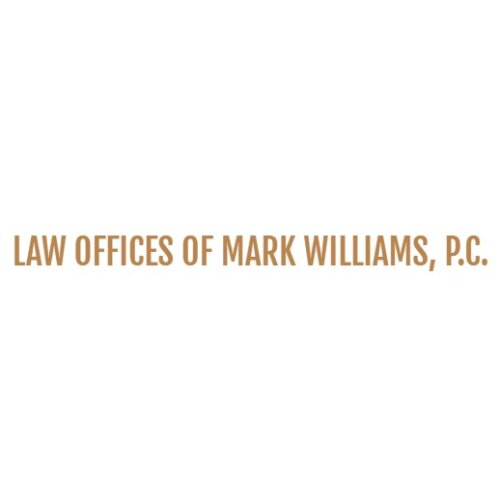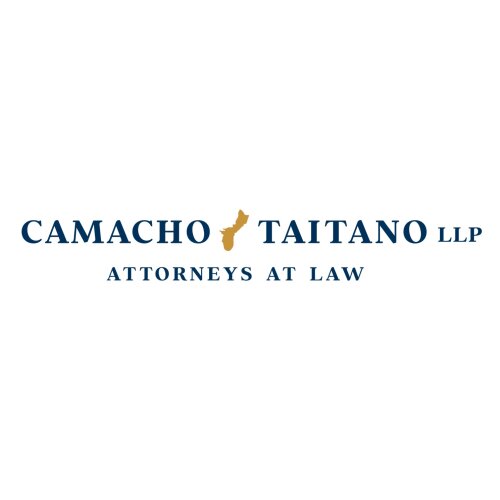Best Employer Lawyers in Hagåtña
Share your needs with us, get contacted by law firms.
Free. Takes 2 min.
List of the best lawyers in Hagåtña, Guam
About Employer Law in Hagåtña, Guam
Employer law in Hagåtña, Guam, encompasses the legal frameworks that govern the relationship between employers and their employees. This field of law covers areas such as wage and hour laws, workplace safety, discrimination, and termination practices. Given Guam's unique status as a U.S. territory, its employer laws reflect a combination of federal guidelines and local statutes. Employers must comply with both sets of regulations, ensuring fair and equitable treatment of workers while supporting business needs. Understanding these laws is essential for maintaining lawful employment practices and fostering positive workplace environments.
Why You May Need a Lawyer
Legal counsel can be invaluable in several scenarios related to employer issues in Hagåtña, Guam:
- Disputes over wage and hour violations, including unpaid overtime or minimum wage discrepancies.
- Cases of alleged workplace discrimination based on race, gender, age, or other protected classes.
- Concerns about wrongful termination or retaliatory actions by an employer.
- Ensuring compliance with local and federal employment laws to avoid legal penalties.
- Drafting or reviewing employment contracts, non-compete agreements, and company policies.
- Dealing with workplace injuries and compensation claims.
- Addressing issues related to employee benefits and entitlements.
Local Laws Overview
Hagåtña, Guam adheres to both local employment statutes and applicable U.S. federal laws. Key aspects include:
- Wage and Hour Laws: These laws regulate minimum wage, overtime pay, and youth employment standards, adhering to the Fair Labor Standards Act (FLSA).
- Anti-Discrimination Rules: The Guam Department of Labor and the U.S. Equal Employment Opportunity Commission (EEOC) enforce rules that prohibit employment discrimination.
- Workplace Safety: Employers must comply with the Occupational Safety and Health Administration (OSHA) standards to maintain a safe working environment.
- Termination and Layoffs: Guidelines govern how and when employees can be terminated, including advance notice and severance pay considerations under certain local statutes.
- Employee Benefits: Laws pertain to health insurance, retirement plans, and family leave, incorporating elements from the federal Employee Retirement Income Security Act (ERISA).
Frequently Asked Questions
What is the minimum wage in Hagåtña, Guam?
The minimum wage in Guam is currently aligned with the federal minimum wage, subject to periodic adjustments. It is important to verify the latest rate as it may change based on legislative updates.
How does work authorization affect employment in Guinaita'i, Guam?
Employers must verify that all employees have legal authorization to work in the U.S., including Guam, using an I-9 form for verification. Those who are not U.S. citizens or residents should have appropriate visas or work permits.
What constitutes wrongful termination in Guam?
Wrongful termination involves dismissing an employee in violation of their contract, discrimination laws, or as retaliation for whistleblowing. It's crucial for employers to have clear, documented justification for termination actions.
Can employers in Hagåtña, Guam conduct background checks?
Yes, employers can conduct background checks, but they must comply with federal guidelines under the Fair Credit Reporting Act (FCRA) and avoid discriminatory practices.
Are rest breaks and meal periods mandatory in Guam?
Guam does not have specific local laws mandating rest breaks or meal periods, but federal laws and specific company policies may address these concerns.
What are the rules regarding overtime pay?
Overtime must be paid at one and a half times the regular pay rate for hours worked beyond 40 in a workweek, as per the Fair Labor Standards Act (FLSA).
What protections exist against workplace harassment in Guam?
Guam follows federal guidelines that prohibit workplace harassment under Title VII of the Civil Rights Act, which includes harassment based on race, color, religion, sex, or national origin.
How can an employer ensure compliance with labor laws?
Employers should stay informed on current laws, provide regular training to staff on compliance issues, and consult with legal experts when drafting employment contracts or navigating complex legal scenarios.
What steps should be taken if an employee is injured on the job?
In the event of a workplace injury, employers should provide immediate medical assistance, report the incident to relevant insurance carriers, and comply with OSHA reporting requirements.
How does family and medical leave work in Guam?
Employees in Guam are entitled to family and medical leave under the federal Family and Medical Leave Act (FMLA), which provides up to 12 weeks of unpaid leave for eligible employees in specific circumstances.
Additional Resources
If you are seeking further information, consider reaching out to or consulting materials from:
- The Guam Department of Labor
- The U.S. Department of Labor
- The Equal Employment Opportunity Commission (EEOC)
- Legal Aid Society of Guam
- Chamber of Commerce of Guam
Next Steps
If you require legal assistance in Employer issues, consider taking the following steps:
- Consult with a lawyer specializing in employment law to understand your rights and obligations.
- Gather all relevant employment documents, such as contracts, pay stubs, and correspondence related to your issue.
- Contact local legal aid organizations if you need pro bono services or have financial constraints.
- Stay informed about your rights through trusted online resources and governmental publications.
- Consider attending local workshops or seminars on employment law provided by government bodies or legal experts in the community.
Lawzana helps you find the best lawyers and law firms in Hagåtña through a curated and pre-screened list of qualified legal professionals. Our platform offers rankings and detailed profiles of attorneys and law firms, allowing you to compare based on practice areas, including Employer, experience, and client feedback.
Each profile includes a description of the firm's areas of practice, client reviews, team members and partners, year of establishment, spoken languages, office locations, contact information, social media presence, and any published articles or resources. Most firms on our platform speak English and are experienced in both local and international legal matters.
Get a quote from top-rated law firms in Hagåtña, Guam — quickly, securely, and without unnecessary hassle.
Disclaimer:
The information provided on this page is for general informational purposes only and does not constitute legal advice. While we strive to ensure the accuracy and relevance of the content, legal information may change over time, and interpretations of the law can vary. You should always consult with a qualified legal professional for advice specific to your situation.
We disclaim all liability for actions taken or not taken based on the content of this page. If you believe any information is incorrect or outdated, please contact us, and we will review and update it where appropriate.









